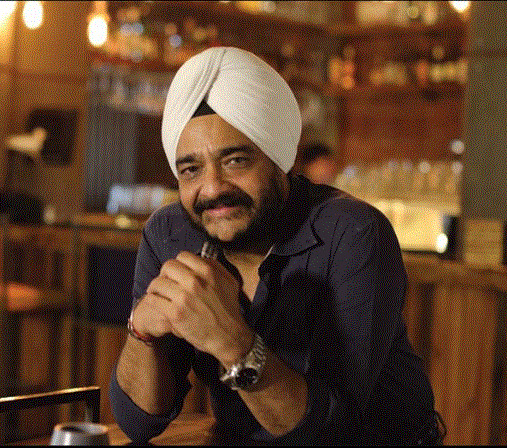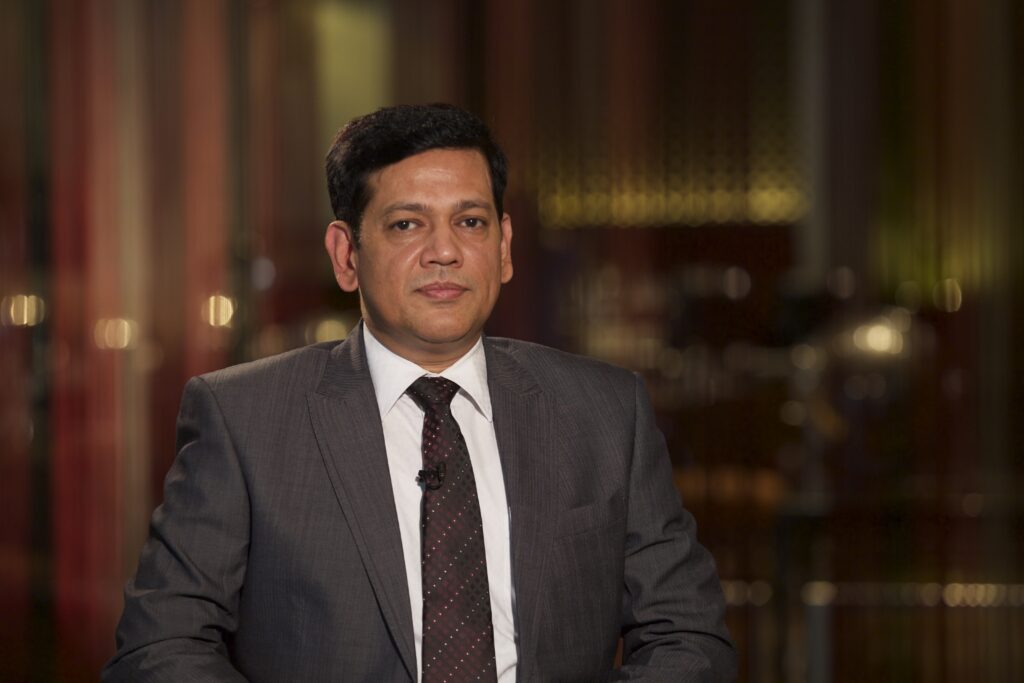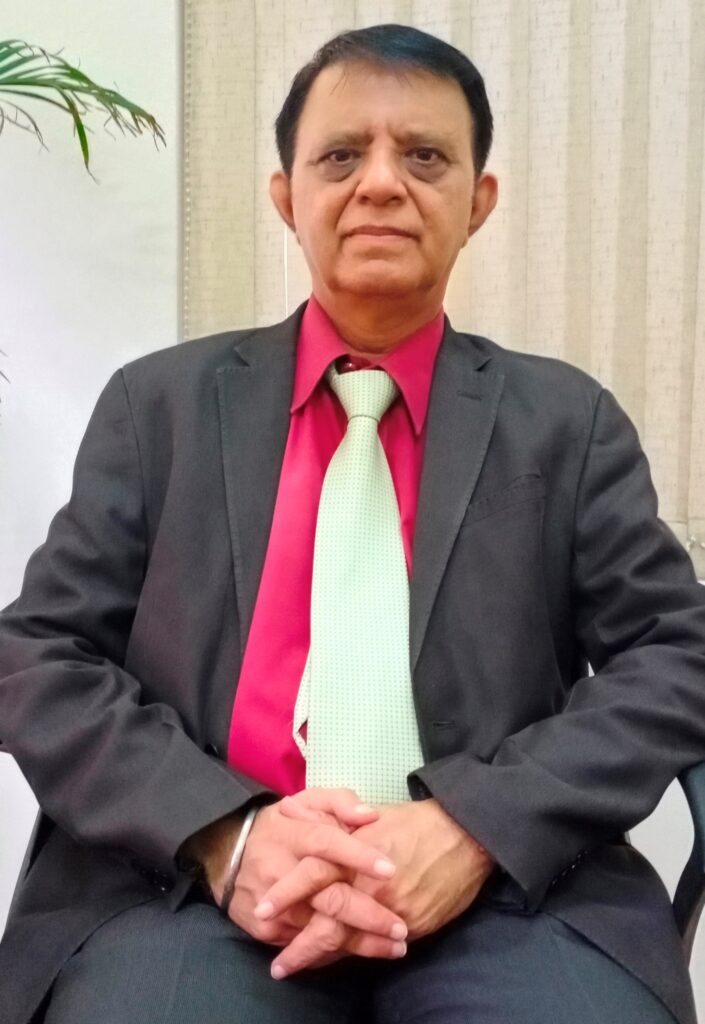Reactions on set of new guidelines issued by CCPA
Mr Gurbaxish Singh Kohli Vice President, Federation of Hotel & Restaurant Associations of India (FHRAI) Most of these guidelines issued by CCPA are already followed by hotels & restaurants. It’s extremely disheartening that the hospitality industry is


Mr Gurbaxish Singh Kohli
Vice President, Federation of Hotel & Restaurant Associations of India (FHRAI)
Most of these guidelines issued by CCPA are already followed by hotels & restaurants. It’s extremely disheartening that the hospitality industry is constantly singled out. We have explained over and over again that there is nothing illegal in collecting a service charge. It is a charge collected for the benefit of the staff which includes everyone from the waiters to the personnel working in the kitchen who have served a consumer directly and indirectly. Besides, no hospitality establishment coaxes a consumer to pay it if for any reason they choose not to. But the industry is being painted as the black sheep in the eyes of the consumer for no reason. Ironically, there are several online websites and apps that charge convenience fees including the Government-run IRCTC. These do not even explain what the charge is for nor is the consumer given a choice to opt out of it. We ask the Government to introduce a law that is uniform to all businesses and that the hospitality industry is not discriminated against. We are an industry that creates jobs and at the end of it, any kind of ruling or order against the service charge will be detrimental to employees since they are the ones who will suffer.”

Mr Pradeep Shetty
Jt. Hon. Sec., Federation of Hotel & Restaurant Associations of India (FHRAI) & Sr. Vice President, Hotel & Restaurant Association of Western India (HRAWI)
We have taken note of the new development. These are a new set of guidelines that have been issued by CCPA and not a new law. Most of these guidelines have already been followed by hotels and restaurants. Nobody was forced to pay the service charge nor was any consumer turned back if they disagreed to pay it. The industry was expecting the enactment of a comprehensive law that would put curbs on levying charges over and above the cost of a product or service and which would be applicable across all industries. However, with these guidelines, it appears that the curbs imposed are applicable only to the hospitality industry. FHRAI may approach the CCPA seeking clarifications and to submit further suggestions. Unfortunately, the beneficial global practice for employees will take a beating. FHRAI will issue a detailed statement after examining and studying the guideline.”

Mr Vineet Verma
Director, Brigade Hospitality
“Service charges or gratuity given by customers to appreciate the good services extended, have long been an important incentive for the staff to look at joining this industry that otherwise involves long & strenuous hours of work with minimal work life balance. While I agree it should not be imposed on customers to pay service charges, it needs to be also left to them as an option to do so. A blanket ban is certainly going to prove counter productive, especially when the industry is reeling under a severe manpower crisis with mounting attrition rates. I believe that the option for the guest to willingly leave an appreciation amount for the good services rendered by the staff, should be always available. The classic case in point is the American hospitality sector where a substantial part of a restaurant employee’s salary comes through service charges. Guests are encouraged to leave tips based on their satisfaction levels and this is done through prominently placed messages on final invoices. We can emulate this practice.”

Mehul Sharma
Founder & CEO, Signum Hotels & Resorts
A major part of the service charge was given to the service staff along with ancillary departments like kitchen stewarding. To some extent it covered the breakage cost too. From a hotel’s perspective I feel this is a loss as the service charge was an important element that benefitted the on-ground and related staff with some additional monthly income.”

Mr. Atul Upadhyay
Senior Vice President, Pride Group Of Hotels
We are against the practice of Service Charges at the Pride Group of Hotels. So, we believe that it is fair that CCPA has issued Guidelines to protect the consumer interest with regard to levy of service charge in hotels and restaurants.
Hotel or restaurant shall clearly inform the consumer that service charge is voluntary.

Mr. Rishi Puri
Senior Vice President Operations & Development, Lords Hotels, and Resorts
Mr. Rishi Puri, Senior Vice President Operations & Development, Lords Hotels, and Resorts expressed that “These guidelines issued by CCPA are not something new for us, we at Lords Hotels and Resorts have been following the authorities’ guidelines since 2020, when it came into force.
And, even thou, our hospitality industry, has taken a strong objection to the Central Consumer Protection Authority’s guidelines, I feel it was the right move by the authority to implement the said terms and conditions to the service charges levied in the hotels and restaurants bills. This will bring about healthier interaction and maintain transparency between a said hospitality establishment and the consumer at large.
With transparency, there will be ease of doing business with good faith, sustaining our clientele strength and maintaining our business values.”

Satyajit kotwal
General Manager, The Resort, Mumbai
It will not and should not impact the hotel business.
This notice on Service Charge is not a surprise. Supreme Court had given diktat on SC long back. Inspite of that many establishments were still charging without informing the guests : and this act of charging without informing or making them pay mandatory is a grave problem.
Establishments can decide to charge only after informing guests and if any guest objects it should be easily removed from the bill.
Our hotel charges service fees into banquets. However they are not charged discreetly.
We inform the guest beforehand at the time of making the contract.
And even after the charging , if the guest objects we always proactively remove the charges without any hassles.

Ruban Das
General Manager, Hyatt Regency Chennai
“The action taken by CCPA regarding the removal of Service tax will surely bring uniformity to the billing structure in the hotel industry. Now establishments cannot arbitrary apply a service charge or mandatorily force the same onto the guests as they are already paying GST and having an extra charge removed will surely bring relief to their pockets. This move should not be viewed as a deterrent but a positive step towards bringing the customers back to the hotel.
Although I would like to suggest that this should not be limited to only one industry, but to all the industries where a service fee is levied to the customer under various names. In short the applicability should not only be for the hospitality segment alone but also for other segments that levy various charges like convenience fee, processing fee, surge charge etc.”

Manvendra Rashk
General Manager operations, The Ambassador Hotel Mumbai
The Central Consumer Protection Authority (‘CCPA’) has issued guidelines with regard to levy of service charge in hotels and restaurants. The guideline basically says that no hotel or restaurant shall add service charge to the bill. I think this is good from the customer’s point of view. Certain restaurants are levying service charges and others are not. This will bring uniformity and the customer will know that he will have to pay just the cost of the food ordered along with the government taxes.
Certain restaurants say that the service charge is for the benefit of the staff, however I am of the view that if any establishment wants to pass on the benefits they can do so without collecting the service charge. A tip is something which is not mandatory and is totally up to the guest to pay or not. But to make it binding on the customer is not something which is acceptable. At Ambassador hotel we are not asking our guests to pay the service charge. Plus, the same guidelines also say that the restaurant is free to charge any amount for the food it is serving. So, if a place wants, it can increase the cost of food items and not levy the service charge.

Dinesh Maan
Director of Food & Beverage, Goa Marriott Resort & Spa
As per my opinion Service charge is neither illegal nor in violation of the law – Every hotel across India has a board at the entrance stating that service charge is discretionary/voluntary payment on part of our guests and guest pays as per his/her own wish and this is being followed since ages. This service charge is generally distributed among all employees of the hotel except top-line managers. If the government is in favor of discontinuing this then they should look towards minimum wages revision and working hour policy strictly.

Sajaneesh Nair
Food & Beverage Manager, Alila Fort Bishangarh
Service charge is for the benefit of the restaurant staff that serves as an incentive to motivate them. Service charge is transparent, work friendly and is recognized as a fair practice in the international market. I believe the levying of service charge is neither illegal nor is it an unfair trade practice as alleged. GST is collected and paid on service charge; hence it is odd that the legality is being debated. Service charge exist in many industries but is termed differently. Aggregators call it a delivery fee, ticketing platforms call it a convenience fee, various government departments call it processing fees, airlines and airports levy all sorts of fees and surcharges. However as per the latest government guidelines a customer needs to be informed and we are happy to welcome the new policies and framework announced by the government that will benefit the customer and continue to give them a transparent service experience.

Mr. Amrut Mehta
Director at The Little Italy Group
“The recent levy for the service charge is not a big blow to the industry in the backdrop of COVID-19 and inflation among other things happening in the country. Before we get to it, it is important to understand what is a service charge? It essentially is a charge for an additional service that a restaurant with an establishment is important and it’s not a common practice that is followed in a broad general in many countries. When you visit a restaurant they ask you to either dine-in or check out. In a dine-in, there is an additional service charge because of the additional cost to the establishment, which is essentially the service charge. Unfortunately, in India consumers somehow think that a service charge is not legal or should not be levied, it is because the restaurant should be paid only for the dish itself. I would like people to understand that the service charge is only for the employees and it’s something the restaurant imparts on these daily wage workers so they can have a little something to live a better life. The workers in the hospitality industry coming after lock-down, COVID-19 and inflation is just going to be hard for the economy to bear and we are going to lose many workers in this industry where we are already short-staffed and lack talent.
Our philosophy has always been to provide a good service and experience that a customer doesn’t need to question the service charge and happily pays for it. That’s always been our aim and what we strive for at Little Italy and that’s how our service has changed as well so that’s how we look at it and of course, many new consumers were authorized to remove it before yesterday or the day before. Respecting the government’s decision to give the service charge, we shall follow the same soon.
If an establishment is displaying it clearly on their menu saying if you come here we have a service charge and that’s how it is right. Adding to this, in India tipping culture doesn’t exist so it’s even worse for people in this industry.”

Debaditya Chaudhury
Managing Director of Chowman, Oudh 1590 & Chapter 2
We have never indulged in any service charge. We belong to the service industry, and the motto is to give the best quality services without charging extra for the same to the customer. Moreover, we believe in affordability and while guests are already paying their GST, charging an additional service charge does not seem fair! However, we do accept tipping but that is entirely an individual choice. We have no imposition or any say in that.

Abhay Kewadkar
Managing Director, Fox in the Field
NRAI has taken a stand that service charge is completely legal. A customer is fully made aware of his rights and that service charge is discretionary, as he enters the establishment. We assure there is enough visibility and communication on this aspect. Many people have lost their jobs and thus their livelihood during the pandemic. Such service charge is also for the welfare of such employees and those who are willing to pay for it should be allowed to do so. In case, any customer is unwilling to pay service charge it is promptly removed. It is basically an agreement between two parties.

Pranav Maheshwari
Cofounder, StayVista
“Essentially, service charge is a part of the product or service a consumer has received and hence it doesn’t seem unfair. As a matter of fact, it is a universally accepted practice – prevalent not only in the hospitality sector but also across other industries such as real estate, banking, e-commerce businesses, and even apps. However, unfortunately, the hotel industry has been singled out.
Also, the funds procured via service charges substantially contribute to the employees and the waiting staff. Moreover, it is a mere guideline as a fixed amount isn’t dictated. We are and always will be loyal to our consumers, and we do not compromise on our services. Therefore, I don’t think adding a service charge to the final bill is unethical.”

Teja Chekuri,
Managing Partner, Ironhill India
When restaurants levy service charge, the collected corpus is disbursed amongst the staff. Service charge was left to the discretion of customers and they chose whether to pay or not and they only paid if & when they appreciated the service. This worked as a tip or an added incentive for the staff irrespective of whether they were tipped or not.
Further, the service charge was taxable, which meant that government too earned out of it. Also, there are other agencies and industries where in a service charge is levied under the convenience fee banner. The f&b industry is valued at over 4 trillion dollars in India with over 80 lakh individuals either under direct or indirect employment in the restaurant industry alone. The restaurant industry itself contributes to about 3% of the GDP and is the single largest employer in the country, hence, it is unfortunate we have been singled out to bear the brunt of the decision.
While over the long term we’ll learn to absorb the implications of it, we were really hoping for a balanced decision- which we believe was to allow consumers to decide whether or not they would like to bear the service charge.

Sharan Goyal
Founder – Director, Crozzo India
Unfortunately, the restaurant industry is singled out repeatedly and forced to give in to these guidelines that seem like arbitrary whims of the people in power. In the western world, gratuity or service charge, be it with whatever name you give, is customary. It is how service staff and chefs make their living. To take this away is putting even more pressure on an industry that is already fighting to thrive. Since the pandemic, food service is the only sector that hasn’t yet returned to its optimum capacity, along with seasonal demand fluctuation leaving a lot of businesses struggling. We should collectively step up and ensure the people serving us our food fairly paid.

Nasir Shaikh
Group CEO, The Lexicon Group of Institutes, MultiFit and EduCrack
“The service charge levied by the hotels and restaurants in India has been a topic of discussion and debate for quite some time. Restaurants and consumers are equally baffled by the guidelines surrounding the practice. According to the newest guidelines issued by the Central Consumer Protection Agency on the 4th of July 2022, “no hotel or restaurant shall force a consumer to pay service charge and shall clearly inform the consumer that service charge is voluntary, optional and at consumer’s discretion.” As part of their duties to the public, these guidelines seek to secure the interests of the consumers and reform the service charge from being mandatory to voluntary.
My understanding of the current situation surrounding the guidelines issued by the CCPA concerning the Service charge levied by hotels and restaurants is, first and foremost, as the guidelines were issued by a recognized authority representing the government, they should be complied with to be in adherence with the law. As an individual who has been involved in the hospitality industry for over two decades and continues to do so in a different role, I understand and can relate to the hotel and restaurant owners’ concerns about the new guidelines.
I believe that it is not the nature of the action, whether voluntary or mandatory, that matters. It’s the willingness and perspective of the consumers that make the difference. My understanding leads me to believe that significant efforts need to be dedicated to raising awareness among consumers regarding the benefits of gratuity and tipping benefits for their servers.
One of the ways of encouraging consumers is by coming up with a solution to assuage the consumers’ doubts regarding the servers and staff receiving the rewards for their service. As important as it is to ensure that our employees are happy as a result of appreciation, it is just as crucial to make sure our consumers are content with their decision to shower appreciation. It is critical to understand that rewards offered by the customers willingly will always be sustainable as a practice in the long run. I think we are a little ways from resolving the dilemma of service charge/tips/gratuity yet. The conclusion I have to come to is the need for unified efforts to ensure that the interests of all involved: industry, stakeholders, and the consumers are protected is the need of the hour”

Rakshit Sharma
CEO – Rester Hotels & Resorts
Service charge is a reward which gets proportionally divided among the service staff and acts as an extra income for them. Service charge is not imposed on any guests but it’s left as an option. Guest is clearly informed that service charge in voluntary.
CCPA’s guideline to ban service charge may cause dissatisfaction among the staff who were getting it regularly every month.

Suved Lohia
Founder Suved Lohia Hospitality
The brief given by CCPA is actually a guideline and it’s not an amendment made so people are actually confused so we are still legally able to levy service charges but the very fact that they are not helping the restaurant industry. For most of the staff, their base salary is less and it’s mandatory to give service charge because that is what actually helps them run the business and burn the midnight oil. It is the fuel that keeps the industry running, their bread and butter is dependent on this so honestly taking away from this is taking away their livelihood who work around the clock and its for their welfare and benefit and we must raise our voices for people who are working hard and serving you, it’s definitely a must!

Atul Chopra
Founder Juliette, Maai & Yazu
To begin with let’s talk about Service Charge, it is part of the owner’s discretion/decision regarding the total price payable by a consumer with regards to sale or service of a product. It constitutes one of the components of the total price of the product. Service charge is distributed amongst all the members of the staff who contribute to your experience. The decision taken by the CCPA will have a major impact on the way people would dine in the future. If the consumer feels that dining out would get cheaper that would be incorrect as we would be forced to increase the prices of our dishes and the end result will be the consumer would end up paying more. We are an industry that creates jobs and at the end of the day any kind of ruling or order against the service charge will be detrimental to employees since they are the ones who will suffer as the service charge plays a major component in their salaries.

Ranbir Nagpal
Founder, Maai, Goa
The CCPA’s decision to remove service charge only highlighted the fact that service charge exists. Our restaurant’s team has always informed the guest that we levy a service charge, and that it is completely at the discretion of the customer on whether they would like to pay for it or not. What is the service charge to a team member? “An incentive, a motivator, it is a fixed way of saying “We appreciated your service” by the guest. A team member only works harder, the better the service, the higher his incentive. The impact that it has on the restaurant industry is 0, but the impact that it has on the team member working on the floor at your restaurant is 100%.

Pankaj Gupta
Founder Taftoon Bar & Kitchen & Oye Kake
Service charges, conveyance fees by portals like IRCTC, Zomato, Swiggy do exist but service charge by a restaurant is not acceptable. What is the rationale behind these charges? The F&B industry drives major contributions to the government boosting tourism in the country. There are a lot of hidden charges which are incurred at the restaurant level, 12 hours of the working on the floor an employee averages 15000 steps everyday, where-in the salary is not much, the service charge plays a vital role. We have reserved funds out of the service charge for the medical emergency of all our staff, which is going to be impacted resulting in us to pay it from our pocket or withdraw it. In the case of small restaurants, service charge is 50% of their salary. Thus removing service charge is going to be a major demotivation.
 English
English French
French German
German Italian
Italian




